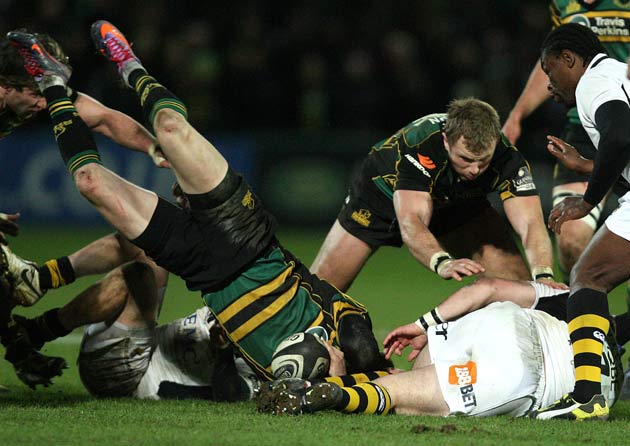Peter Bills: Referees must help English players learn the rules

Your support helps us to tell the story
From reproductive rights to climate change to Big Tech, The Independent is on the ground when the story is developing. Whether it's investigating the financials of Elon Musk's pro-Trump PAC or producing our latest documentary, 'The A Word', which shines a light on the American women fighting for reproductive rights, we know how important it is to parse out the facts from the messaging.
At such a critical moment in US history, we need reporters on the ground. Your donation allows us to keep sending journalists to speak to both sides of the story.
The Independent is trusted by Americans across the entire political spectrum. And unlike many other quality news outlets, we choose not to lock Americans out of our reporting and analysis with paywalls. We believe quality journalism should be available to everyone, paid for by those who can afford it.
Your support makes all the difference.Rugby's new refereeing interpretations are set to have a major effect at the World Cup next year. That much is being made crystal clear by IRB referee co-ordinator Paddy O'Brien.
There will be no changes from this policy. By June, when the northern hemisphere countries play Test matches in the southern hemisphere, they must be ready to adapt to the new law interpretations. There will be the same refereeing approach the world over.
But if England's players are to have any chance of getting to grips with them, then they are going to need far better refereeing than David Pearson offered at Northampton last weekend.
The players of New Zealand and Australia have a built-in advantage in terms of playing the game at pace, with dynamism and aggression. But England's players have no chance of understanding the new interpretations if they get so little help from a leading referee like Pearson. Frankly, his performance was nowhere near the international class he is supposed to represent.
In the first half, he and his assistant referee missed a glaring piece of obstruction which gifted Northampton a try and the half time lead. In fact, it was to prove crucial to the outcome of a game Northampton won by 5 points, the value of their ‘try' that never was.
But it was Pearson's failure to referee the breakdown that was so disappointing. He let players lay all over the loose ball, allowed the tackler to hold onto the ball carrier far too often and for too long.
As a result, the ball that eventually emerged from the breakdown was about half an hour behind the rapid, second phase ball that is now being recycled regularly in the Super 14. If that situation is allowed to continue, England's players have absolutely no chance of coming to grips with the far stricter interpretations which are rapidly changing the game for the better.
Pearson hardly seemed to know that a new, more dynamic, altogether quicker game is emerging. He seemed happy to allow the old status quo to continue. Coming just three days after a major meeting called by O'Brien, the IRB's referee co-ordinator, with all the leading northern hemisphere referees in attendance, that has to be disappointing in anyone's language.
Pearson's non-performance allowed the old ball-killing by both sides to such an extent that it was as though the revolution in law interpretations was a fantasy. You really expected better from an international referee. It was as though he had no interest in refereeing the new interpretations with their strict demands in five categories of play: the scrum sequence, the tackle area, offside around the fringes of ruck and maul, offside in general play especially after downfield kicks and finally, formation of the maul.
Northampton are almost certainly the most entertaining, attacking minded side in the Guinness Premiership and Pearson's reluctance to tackle the transgressors did them no favours whatsoever. But if referees at this level won't act, then the northern hemisphere has no chance of learning quickly, because for sure they're being left behind by all the southern hemisphere countries.
They had to adapt to these new strictures right from the start of this year's Super 14 in early February. The hard grounds across the southern hemisphere have been a huge advantage and encouragement to those seeking to play a faster, more dynamic game.
But it's only by the referees being so strict - in essence, being cruel to be kind – that players in the northern hemisphere are going to learn. If they get to the World Cup next year still struggling to come to terms with the new interpretations, it is hard to see them challenging the southern hemisphere dominance of the World Cup. Remember, only one northern hemisphere country, England in 2003, has ever won the tournament in six attempts.
That's not a record to be proud of and the players north of the equator need every bit of help they can get, if they are going to right that wrong in September next year, in New Zealand.
Pearson's performance was sub-standard in so many ways. He allowed Wasps half-back Joe Simpson to feed the ball so crookedly into one scrum that it all but missed his own second row, going straight into the feet of the No. 8 as the scrum slewed around.
Honestly, what is the point of having a scrum and laughingly calling it "a contest" if that sort of thing is allowed to happen?
Join our commenting forum
Join thought-provoking conversations, follow other Independent readers and see their replies
Comments